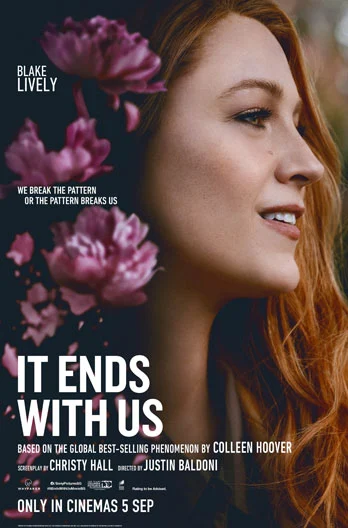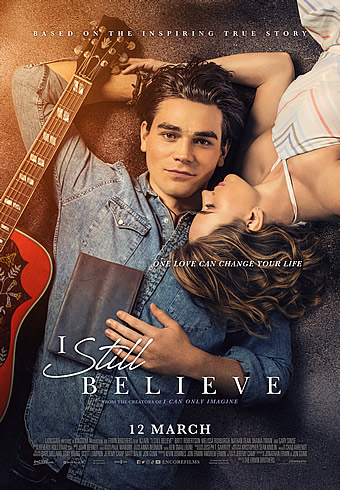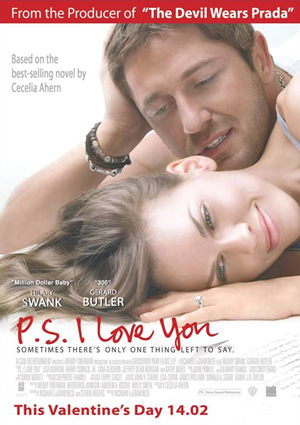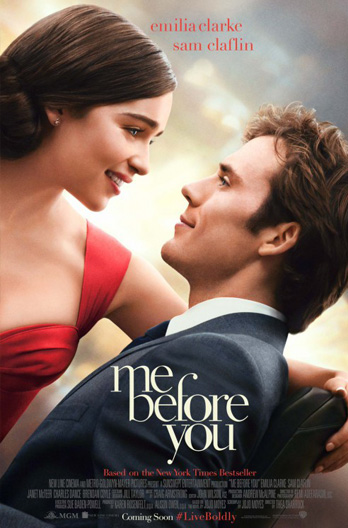IT ENDS WITH US (2024)
Genre: Drama/Romance
Director: Justin Baldoni
Cast: Blake Lively, Justin Baldoni, Brandon Sklenar, Jenny Slate, Hasan Minhaj, Isabela Ferrer, Alex Neustaedter, Amy Morton
Runtime: 2 hrs 10 mins
Rating: PG13 (Some Scenes Of Intimacy)
Released By: Sony Pictures
Official Website:
Opening Day: 5 September 2024
Synopsis: Global publishing phenomenon IT ENDS WITH US (Colleen Hoover’s beloved book) becomes an inspiring theatrical event. Lily Bloom (Blake Lively) leaves her small hometown to embark on a new life in Boston, chasing a lifelong dream of opening her own flower shop. A chance meeting with charming neurosurgeon Ryle Kincaid (Justin Baldoni) sparks an intense connection, but as the two fall deeply in love, Lily begins to see sides of Ryle he has attempted to keep hidden. When Lily’s first love, Atlas Corrigan (Brandon Sklenar), suddenly reenters her life, her relationship with Ryle is upended, and she realizes she must rely on her own strength to make an impossible choice for her future.
Movie Review:
You may have read reports of the purported feud between Blake Lively and Justin Baldoni during the filming of this movie, which apparently got so severe that both stars refused to be photographed together during the press tour. No matter what the truth is, their off-screen animosity is hardly noticeable amidst their on-screen chemistry – indeed, as florist Lily Bloom and neurosurgeon Ryle Kincaid respectively, Lively and Baldoni are effortlessly charming as a couple who spend the first half of the movie discovering how well they complement each other.
Yet as those who have read the bestselling Colleen Hoover book will know, this is only one half of the story. The other – and we dare say, the more intriguing half – concerns both of their past lives, and how their respective traumas continue to cast an ominous shadow over their present-day personas. For Lily, it is both a past love in the form of former high school flame Atlas Corrigan and her late father’s physical abuse of her mother; and for Ryle, it is a family death from his childhood that was the result of a tragic accident. To say more would be to spoil the surprise for those who have not read the book, but suffice to say that it is what elevates the material beyond just another romance.
To the uninitiated therefore, while it may come across as just another love triangle between Lily and Ryle and Atlas, ‘It Ends with Us’ proves to be a lot more complex and we dare say, sophisticated. Sure, it does the usual meet-cute between Lily and Ryle – atop a rooftop where Lily is just returning from her dad’s funeral where she drew a blank delivering his eulogy (which the movie will fill in the blank of later) and Ryle is coming off a bad day at work – but it also leaves hints as their relationship progresses that there is something more troubling that is why Lily blacks off at occasions when Ryle loses his barely controllable temper.
Likewise, though the re-appearance of high school crush Atlas (Brandon Sklenar) may come across utterly contrived, it ultimately becomes a narrative instrument for Lily to remember a part of her past that she had buried, as well as to make a decisive choice eventually on her present which she had been trying to avoid. Like we said, it is in the second half of the movie that the construct of the narrative truly starts taking shape, and with the various pieces falling into place, the film – including its stars – do take its audience to genuinely tense places.
We admit we had not thought much about Lively as an actress before this, but it is to her credit that she juggles both the flower-loving, funky-dressing free-spirit side of her character with that of a wounded, self-protective soul deftly. Whatever her disagreements with Baldoni might have been, Lively’s performance is well calibrated across the course of the movie, carefully revealing layers until she finally addresses the pain of her past and wrests free from its all-consuming influence. Baldoni is a magnetic foil next to Lively, charismatic, sharp but with an edge that you cannot quite place until the third act, and no matter their feud, their on-screen relationship is captivating from start to finish.
To be sure, this is not a perfect film – most glaringly, how it manages the tonal shifts from its beginning to its end – but Baldoni, who also directed the movie, handles the important stuff well. Female viewers might think the material would be better handled through the lens of a female director; still, Baldoni’s sensitive treatment of themes like abuse, trauma and recovery is thoughtful, measured and thorough. It is on these bases that the film truly finds its footing, and how it becomes a lot more than just soapy Lifetime Movie-schmaltz. Comparisons with the book will no doubt be inevitable, but this adaptation does a convincing job of persuading those with similar stories to tell to be brave, bold and to make a decisive change.
Movie Rating:




(More than just a soapy love triangle, this story of how we come to terms with our past to avoid a repeat of the present is sobering, nuanced and even quietly compelling)
Review by Gabriel Chong
You might also like:





.jpg)